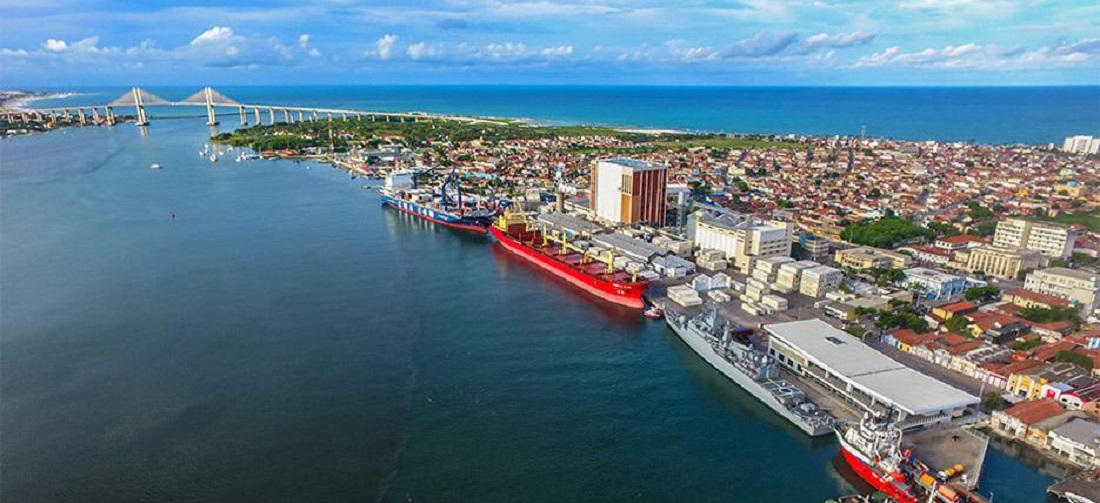
Port of Natal: throughput drops 20.59% in 2023, says Antaq
Nov, 27, 2023 Posted by Gabriel MalheirosWeek 202335
Blessed with a strategic location near the European and African continents, Rio Grande do Norte has the potential to become an economic powerhouse and a key hub for exports in Brazil. Data from the National Waterway Transportation Agency (Antaq) reveals that from January to September 2023, the Port of Natal experienced a throughput drop of 20.59% compared to the same period last year.
The throughput decline extended across the state, other port facilities included. Antaq recorded an 8.83% decrease in port throughput statewide. According to the agency, the cargo moved went from 6.4 million tons in 2022 to 5.8 million tons in the first nine months of this year.
March stood out as the best month of the year, with 787,000 tonnes of goods passing through the port terminals of Rio Grande do Norte. On the other hand, June marked the lowest point of the year, with 486,000 tonnes. According to statistics from Antaq, 71.9% consists of solid bulk cargo (4.2 million tons), 25.4% liquid bulk (1.4 million tons), and 2.4% containerized cargo (139,000 tons).
In the state, commodities such as salt, petroleum derivatives, and wheat were the most prevalent throughout the year. Containers, fruits like melons, watermelons, papayas, and paper goods are the most frequent cargo types at Rio Grande do Norte port terminals.
Port of Natal
This year, Natal experienced a 20.59% decline in cargo throughput. In 2022, 431,025 tons of cargo passed through the location, compared to 342,298 this year. According to the communication department of the Port Company of Rio Grande do Norte (Codern), the decline was attributed to the end of operations from French company CMA CGM in April of this year. At that time, Codern informed that the company’s decisions, previously planned for October of this year, would cause a 13% drop in the projected revenue for 2023.
The terminal’s best month was March, with 74,843 tonnes of cargo recorded. In contrast, with 9,536 tons of cargo passing through the Port of Natal, June was considered the worst month, according to Antaq’s survey.
Wheat stood out as the most handled commodity, with 178,000, followed by containers (139,337). Fruits, such as melons, watermelons, and papayas (12,151), come in third, followed by salt (6,046).
Regarding the cargo profile, the Natal terminal showed a growth of 236grewgo. However, there was a 15.3% decrease in solid bulk cargo and a 32.9% contraction in containerized cargo. As a result, according to Codern, sensitive foods like fruits are now being exported in pallets on ships operated by Green Sea/Agrícola Famosa. “The operation has been successful, and the fruits are arriving in excellent quality in Europe,” Codern expressed regarding fruit exports through the Port of Natal.
-
Other Cargo
Sep, 14, 2021
0
Footwear exports in 2021 have almost fully recovered compared with 2019
-
Other Logistics
Dec, 23, 2022
0
Log-In buys Grupo Oliva Pinto for BRL 100 million
-
Blog News (ENG)
Jul, 01, 2024
0
Ceará state to modernize Mucuripe Port with BRL 50 mln budget
-
Economy
Mar, 13, 2023
0
US container import dip highlights economic fragility

